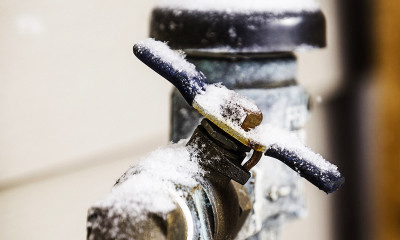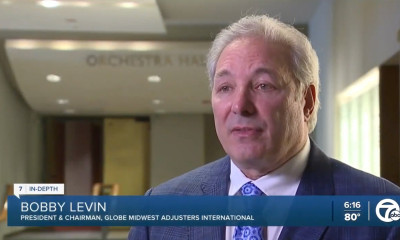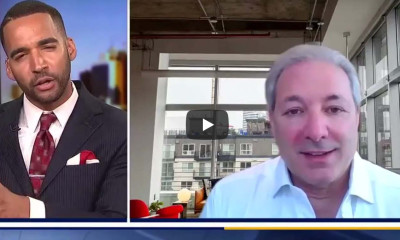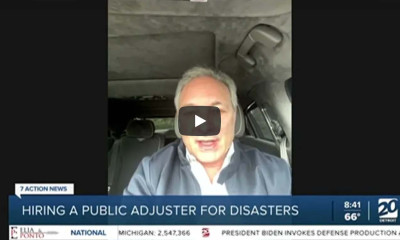Everything you need to know about your home, from securing a mortgage to painting your living room.
The excitement of purchasing a new home shouldn’t be cut short by unforeseen problems.
You can be put in a financial crisis just because you didn’t have the right insurance policy.
Homeowners insurance gives you peace of mind, it covers damage done to your property, risk of liability and it protects you against any legal claims.
For any homeowner, it’s essential to have, but not all policies are equal.
We went to the experts to answer all of your questions about homeowner’s insurance.
Which Type of Policy is Best?
When it comes to homeowner’s insurance, like any other insurance, you have different policy options. An Actual Cash Value policy covers the current, probable worth of the home but not the cost to rebuild the home after a loss. Say you wanted to sell your home tomorrow, and its current estimated worth is at $85,000. If that home burns to the ground and the cost to rebuild it is an estimated $150,000, you risk not having enough coverage.
Sarah Haun, a P & C specialist at Advanced Insurance Designs, Inc., recommends that homeowners should instead get what’s called Replacement Cost Coverage. Replacement coverage covers repair and rebuilding costs, even if they exceed the market value of your home, and it takes care of things like removal of debris and basement repairs.
Although most buyers opt for basic policies, some mortgage companies require that you have replacement cost coverage.
Stacey Giulianti, chief legal officer at Florida Peninsula Insurance, says that there are two main types of coverages that homeowners should be familiar with.
A Named Peril Policy is a policy that’s less expensive but only covers what is listed. For example, if the policy doesn’t explicitly state that it covers tornados and your home is damaged by a tornado, you will not be covered.
An All Risk Policy takes an opposite approach from the Named Peril Policy. It covers any loss to your home unless the policy specifically excludes it. Giulianti says that one typical exclusion from an all risk policy is earthquakes.
How Much Does Homeowners Insurance Cost?
It’s difficult to offer a blanket or general cost for homeowner’s insurance because it depends on the replacement cost, condition, and location of the home. Two other factors will be your credit score and your past claims history.
For example, in Ohio, a homeowner with a good credit score, no prior property claims, and a home in good condition can expect to pay around $700 a year for a $150,000 house.
Giulianti illustrates a few examples of how the geography of a home can impact certain costs.
In Florida, the average homeowner’s insurance is about $2,000 a year. In Idaho, it’s around $550 a year. In Georgia, you are closer to $900 or $950 a year. In Oregon, $600 a year, and in some places, like Texas, it’s closer to $1,700 or $1,800 a year. Homeowners should keep in mind that extra coverage like replacement cost, water backup, and identity theft will increase the cost of your policy. Homeowners insurance typically does not cover earthquakes or sinkholes.
How Can You Save?
The number one way to save on your rates is having your home and auto coverage with the same insurance company. Depending on the insurance company, you can expect to save up to 25 percent, says Haun. Maintaining good exterior housekeeping and staying up to code with things like roofing, electrical, and plumbing can also help reduce insurance cost and save you cash.
It’s important to know that most insurance carriers inspect the exterior of the property whenever they issue new policies and every few years after that. If you are a budget-conscious homeowner, keeping your property well-manicured helps reduce this cost.
What Does it Cover?
A basic homeowner’s policy provides coverage for the dwelling, outbuildings (like garages, sheds, and gazebos), and your personal property (including furniture and clothes) in case of fire, theft, wind, or hail.
Liability coverage includes any lawsuits filed against you, meaning that if someone falls and breaks their arm on your property, you’d have liability protection through your home policy.
Your home policy also covers something called the Loss of Use. If you’ve experienced a fire and can no longer occupy your home, your Loss of Use coverage would pay for things like hotel costs and unexpected food costs while your home undergoes repairs.
What Doesn’t it Cover?
Earthquakes, sinkholes, and mud flow would typically not be covered by almost any policy. However, there may be specialty coverage you could buy for earthquakes.
Mold is another policy exclusion most homeowners don’t consider. Say for instance, a pipe bursts and you clean up the water but you are unaware that water is in the walls or under the flooring. It later causes mold. This oversight could end up costing you $100,000 or more to clean up because you didn’t factor in things like repairing the wall and flooring.
Under a basic insurance policy, luxury items like high-priced jewelry or an art collection would not cover anything above a certain amount. For instance, say you’ve inherited, a $10,000 diamond ring, but you only have $2,000 in coverage. If the ring is stolen, you would incur an $8,000 loss, without that additional coverage.
Identity theft coverage is typically not part of a homeowner’s policy, but it’s something Giulianti suggests homeowners consider buying. A lot of these extras are not that expensive, and first-time homeowners should look into coverage that offsets these exclusion gaps. For example, at Florida Peninsula Insurance, they offer an identity theft policy or endorsement to your policy for around $25 a year.
What Happens if You Don’t Have it?
All mortgage companies require that you have homeowner’s insurance. If you don’t have insurance at the time of the closing, the bank or mortgage company will force place insurance through a carrier of their choice, says Haun. The policy covers only the structure of the home, and you can “expect to pay double, triple, or even quadruple the price of a private market policy,” he says.
Conversely, homebuyers who pay cash for their homes often don’t need to purchase a home policy, but Giulianti believes it’s a poor business decision not to. For a few hundred dollars a year, you are protecting your investment.












